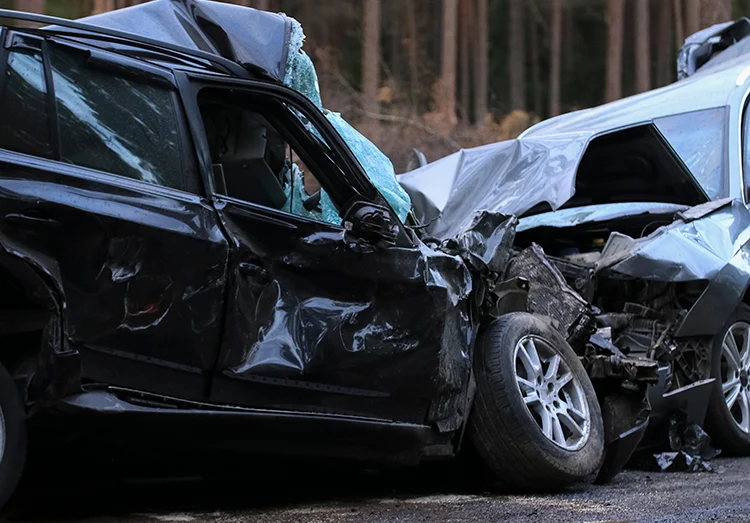
The prospect of driving without auto insurance is a risky venture, laden with potential legal and financial pitfalls. In the immediate and long-term aftermath of an accident, this decision can lead to complex, often distressing, situations. This comprehensive article explores the myriad of challenges and offers guidance for those navigating this difficult path.
1. The Legal Imperative of Auto Insurance Auto insurance is more than a mere formality; it’s a critical legal requirement in many jurisdictions. Driving without it not only flouts legal norms but also exposes drivers to severe penalties. From hefty fines to the possibility of license revocation, the legal consequences are daunting. Moreover, in the event of an accident, the absence of insurance amplifies these legal complexities exponentially.
2. The Financial Gamble of Uninsured Driving The financial implications of driving without insurance are profound. In the blink of an eye, an uninsured driver can find themselves responsible for substantial costs. These include, but are not limited to, vehicle repair or replacement, medical bills for any injuries caused, and potentially, significant legal fees. This financial burden can be crippling, especially without the cushion of an insurance policy.
3. The Immediate Aftermath of an Accident The moments following an accident are critical, particularly for an uninsured driver. This section outlines the necessary steps to take, emphasizing the importance of safety, the legal obligations to exchange information, and the necessity to document the accident scene comprehensively. These initial actions can significantly impact subsequent legal and financial proceedings.
4. Confronting Legal Repercussions Post-accident, an uninsured driver often faces a complex legal landscape. This may involve defending against third-party claims or even facing state-imposed penalties for uninsured driving. This part of the article delves into typical legal scenarios an uninsured motorist might encounter and underscores the importance of obtaining competent legal advice.
5. Dealing with Third-Party Claims In accidents involving other parties, uninsured drivers are typically liable for damages. This section provides insights into how to navigate third-party claims, the negotiation process, and the potential for out-of-court settlements. It also highlights the risk of litigation, should an amicable resolution not be achievable.
6. Financial Ramifications and Recovery The financial aftermath for an uninsured driver in an accident can be long-lasting. Here, we explore options for financial recovery, including payment plans, personal asset evaluation, and potential bankruptcy in extreme cases. This section is aimed at offering practical advice for those facing substantial financial obligations post-accident.
7. Psychological Impact of Accidents The psychological impact of being involved in an accident, particularly as an uninsured driver, is often overlooked. This segment discusses the stress, anxiety, and potential guilt that can arise, advocating for the importance of seeking professional psychological support in the aftermath.
8. Learning from the Experience A critical component of navigating post-accident scenarios is learning from the experience. This includes understanding the importance of insurance and the protections it offers. It also involves a discussion on how to approach obtaining insurance in the future, considering factors like coverage options and cost.
9. The Role of Insurance in Accident Prevention Insurance plays a vital role not just in post-accident scenarios but in accident prevention as well. This section explains how having insurance can make drivers more responsible and aware of the potential consequences of their actions, thereby contributing to safer driving behaviors.
10. Exploring Auto Insurance Options For those looking to rectify the mistake of driving uninsured, this part offers guidance on exploring auto insurance options. It covers how to compare different policies, understand coverage limits, and select a plan that provides adequate protection without being financially burdensome.
11. Navigating Insurance Post-Accident For drivers who have experienced an accident without insurance, obtaining coverage subsequently can be challenging. This segment provides tips on how to navigate the insurance market post-incident, including how to handle increased premiums and the potential for denied coverage.
12. The Importance of Legal Representation In the labyrinth of legal issues post-accident, having competent legal representation is invaluable. This section outlines how to choose an attorney, the benefits of legal representation, and what to expect in terms of legal support during the aftermath of an accident.
13. Strategies for Financial Management Effective financial management post-accident is crucial. This part of the article offers strategies for managing expenses, negotiating payment plans, and seeking financial counseling. It also discusses the importance of transparency with creditors and developing a realistic budget to handle the financial fallout.
14. Community Resources and Support In the wake of an accident, especially without insurance, leveraging community resources and support networks can be a lifeline. This section highlights available resources, such as local non-profits, counseling services, and support groups, that can offer assistance and guidance.
15. Conclusion: Moving Forward with Caution and Coverage The article concludes by emphasizing the importance of learning from past mistakes and moving forward with a renewed commitment to responsible driving. It reiterates the critical role of insurance in providing peace of mind and financial security and encourages readers to prioritize obtaining adequate coverage as a fundamental aspect of responsible vehicle ownership.
MACRO AQUI

